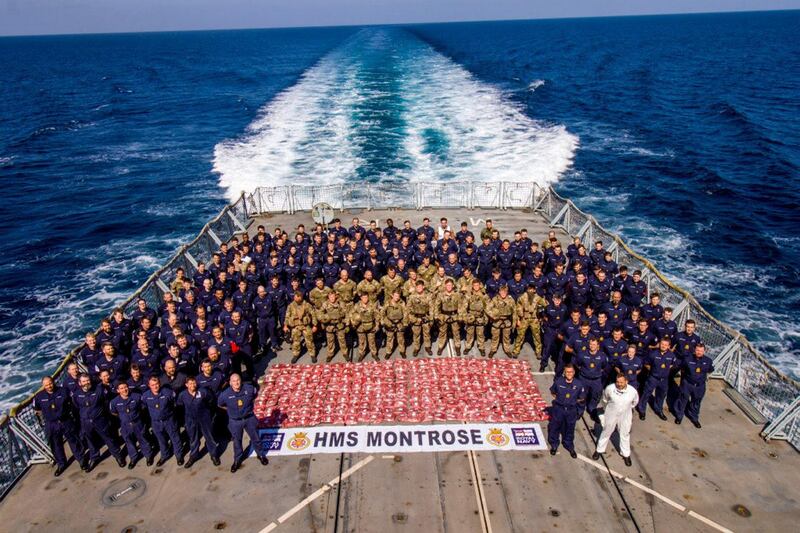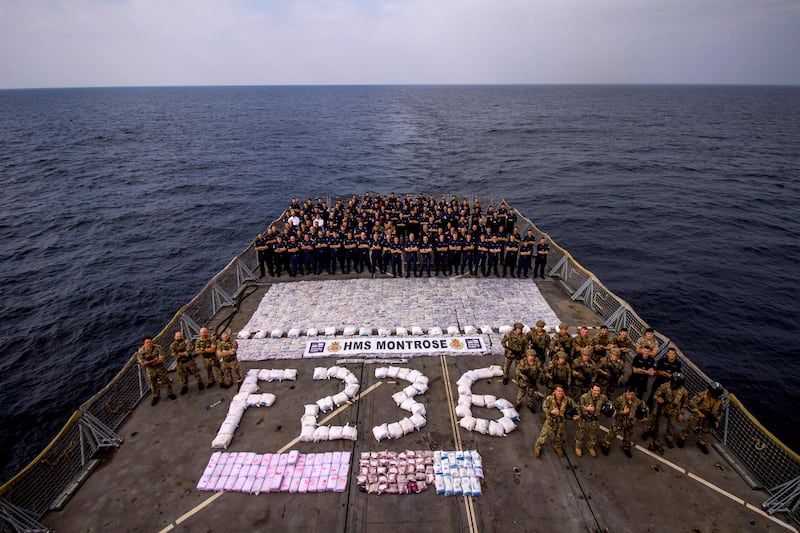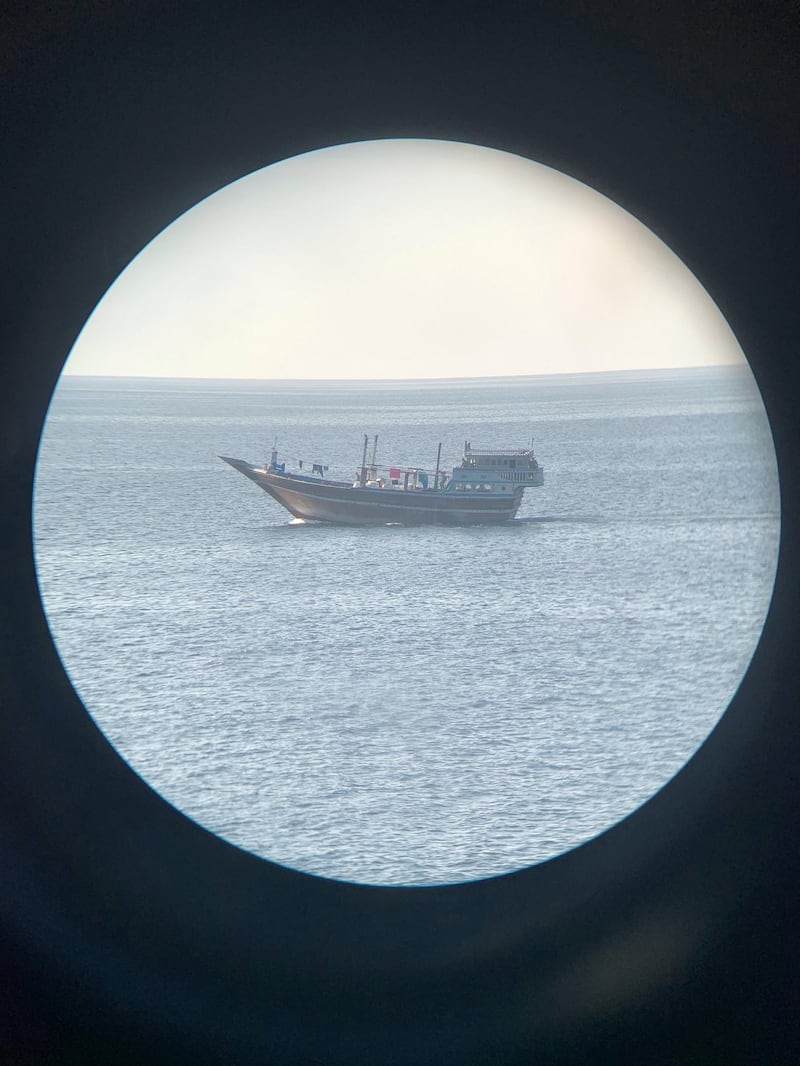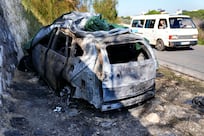Britain’s Royal Navy said it seized 2.4 tonnes of drugs worth more than $15 million in a 10-hour operation in the Arabian Sea on Wednesday.
The hashish, heroin and methamphetamine was found after searches of suspicious vessels by the Royal Navy's HMS Montrose warship, operating under the Combined Maritime Forces.
Another 275 kilograms of heroin was found in the same area two days ago, the CMF said.
The @RoyalNavy frigate @HMSMontrose has intercepted over 5300 lbs (2400 kg) of illicit drugs as a result of back-to-back successful interdictions in the Arabian Sea.
— Combined Maritime Forces (@CMF_Bahrain) February 17, 2021
Read more: https://t.co/FZOfGIMe61#ReadyTogether @thetimes @globeandmail @BBCWorld pic.twitter.com/82zHDw6wme
"These interdictions prevented significant amounts of illicit substances being sold on the streets, while denying criminal groups an income source often associated with the funding of terrorism," HMS Montrose commanding officer Ollie Hucker said.
The Arabian Sea, part of one of the world’s most important trade routes, connects the Arabian Gulf to the Strait of Hormuz.
On Tuesday, the US Navy said its guided-missile destroyer, the USS Winston S Churchill, seized thousands of Kalashnikov-style rifles, light machineguns, heavy sniper rifles, rocket-propelled grenade launchers and crew-served weapons off the coast of Somalia.
Over the course of two days, the destroyer halted and searched two ships for illicit cargo as part of the navy's routine maritime security patrol in the region. Those aboard the vessels were released after the operation, it said.
"These operations prevent nefarious actors from illegally spreading their lethal aid," said Cmdr Timothy Shanley, commanding officer of the Churchill.
Last June, Saudi naval forces seized a dhow carrying anti-tank missiles and thousands of assault rifles believed to have been manufactured in Iran. The weapons were on their way to Yemen via smuggling networks in Somalia, according to a recent report by the Global Initiative Against Transnational Organised Crime.
The US Bahrain-based 5th Fleet repeatedly accuses Iran of smuggling arms via the Arabian Sea to the Houthis, which hold Yemen's capital, Sanaa, and much of the country's north.
Iran's mission to the United Nations did not respond to a request for comment on the interception.









